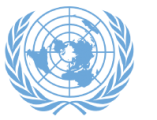Mr. President,
I would like to thank Foreign Minister Maas and Germany for convening today’s open debate. The high-level participation in this discussion on sexual violence in conflict – as well as the late hour because of the length of the list of speakers – is a testament to the global importance of this issue.
We all agree that sexual violence in conflict is a particularly heinous and vicious crime, as well as a threat to international peace and security. Some armed groups, however, continue to use sexual-based violence as a tactic of war with no fear of consequence to subjugate and humiliate their opponents, or to retain recruits.
Da’esh is particularly notorious for these actions in our region, and, despite their recent loss of territory and defeats, not a single member of that terrorist group has been held accountable for the sexual violence it has inflicted, as poignantly described in Nadia Murad’s brave testimony today. Similarly, it is unconscionable that no one has been punished for the sexual violence directed at the Rohingya. As the Secretary-General mentioned earlier, women and girls were gang-raped in their homes before they were forced to flee Myanmar. Ending impunity is an essential deterrent against future crimes.
Beyond the trauma that conflict-related sexual violence causes, it contributes to the dangerous cycle of insecurity and inequality that impedes the participation of survivors—predominantly women—in peace processes. Via Security Council Resolution 1325, UN Member States have committed to increasing the participation of women across the peace-development continuum, recognizing the crucial role of women in preventing conflict and sustaining peace.
I would like to share what my country the UAE is doing to try and help in its small way.
Earlier this year, the UAE and UN Women launched a military and peacekeeping training program for Arab women at the women’s military academy in the UAE. The program aims to build the capacity of women in our region, and will strengthen the pipeline of women for deployment to peacekeeping operations in the future.
The first cohort of women, 134 in total, has recently completed the training, and we will expand the program to include women trainees from countries beyond the Arab region.
Meaningful participation in peace processes requires an enabling and encouraging environment for survivors to tell their stories. The majority of survivors are women and girls. Few of them come forward because of the perceived shame, fear of rejection, and lack of resources—among a number of other factors. To address these challenges, we need a survivor-centered approach as recognized by the resolution adopted today. We need to raise awareness of the stigma surrounding rape, and offer resources and support in a way that empowers survivors. The UAE has financially supported the excellent work of the Special Representative’s Team of Experts on the Rule of Law and Sexual Violence in Conflict, and we encourage other Member States to do the same.
Mr. President,
In our efforts to further the women, peace and security agenda in the next phase of implementation beyond 2020, I am pleased to announce that the UAE will shortly launch a panel series with the Georgetown Institute for Women, Peace and Security to examine the important role of women across the social, political, and economic components of post-conflict reconstruction and to elevate research and better inform data-driven policy and practice. It is a critically understudied area of the WPS agenda, and we look forward to sharing the outcomes of this project.
Ending conflict-related sexual violence, as envisioned by Resolution 1820, is a daunting task, but a moral imperative for us all. Member States should implement the Secretary-General’s recommendations on conflict-related sexual violence, and prioritize three actions:
- First, we should focus our efforts on documenting and tracking cases of conflict-related sexual violence. Without evidence or data, it is impossible to measure the effectiveness of our efforts in eradicating sexual violence or holding individuals accountable.
- Second, we should support national efforts by states currently in conflict or in a reconstruction phase to address impunity, as called for by Amal Clooney this morning. This includes strengthening the capacity of national investigative and judicial bodies, as well as supporting and increasing the number of Women Protection Advisors in UN missions.
- Third, we should mainstream gender equality and women’s empowerment in our foreign policy and development programming. The UAE has set a goal for the entirety of our foreign assistance programming to contain a gender component by 2021, and we encourage others to set similarly ambitious targets.
Thank you, Mr. President.


